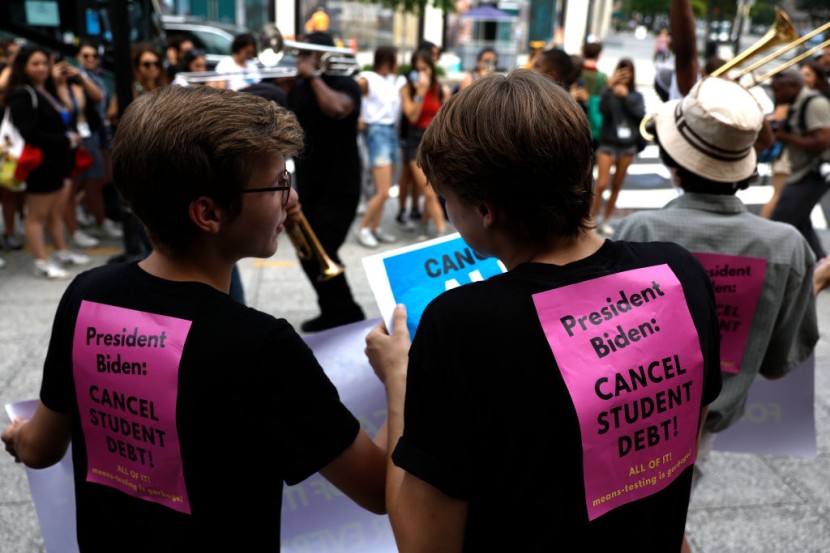
According to a notice on a government website, the United States government has ceased accepting applications for student debt relief after a federal judge rejected President Joe Biden's loan forgiveness scheme.
On Thursday, a court in Texas appointed by the former president of the United States declared that Biden's proposal to forgive hundreds of billions of dollars in student loan debt was unconstitutional and needed to be overturned. The verdict is being appealed by the Biden administration.
Student Loan Forgiveness Canceled
The statement notes, "At this time, we are not accepting applications. We are trying to overturn those orders. If you have already applied, we'll hold your application. Courts have issued orders blocking our student debt relief program."
The US Department of Education has now granted petitions from 16 million of the approximately 26 million Americans who have filed for student loan forgiveness, according to Reuters.
The Biden administration hurried to appeal the ruling and did so on Thursday night. Biden's initiative, according to US District Judge Mark Pittman, "uses Congress's legislative power in an unlawful manner and must be revoked."
According to Biden's proposal, eligible federal student loan debtors will have their outstanding sums forgiven once, up to a maximum of $10,000 or $20,000 in the case of Pell Grant recipients.
Per Fox Business, federal student loan borrowers must make less than $125,000 per year, or $250,000 for married couples, in order to qualify. Regardless of how student loan forgiveness develops from here, private student loan borrowers frequently are not qualified for any kind of federal student aid.
Consider refinancing your current loan to achieve a lower interest rate if you have private student loans and want to cut your monthly payment.
Read Also : 2022 US Midterm Elections: Winner of Senate Race Could Take Until December to Decide | Here's Why
What's Next?
The federal government is currently unable to accept new applications or cancel the debt of the 16 million persons whose applications have been granted due to the district court's decision. The Biden administration is unable to discharge any student debts since the program has been suspended until the lower court makes a decision on the six states' request for an injunction.
Unless Congress adopts laws approving it or higher courts rule in favor of Biden, broad loan forgiveness may be gone. Prior to the expiration of a payment moratorium on student loans on December 31, the Biden administration had initially intended to start forgiving debt by the end of this year. Now, all of it is in doubt.
According to the Biden administration, the suspension of student loan payments was extended through December 31 and is the final extension. So, debtors should prepare to begin paying payments again in January. Your personal finances may suffer if you don't make payments on federal or private student loans. Missed loan payments cause loans to become overdue, and a late fee may also be assessed for each one.
Late payments can affect credit reports and credit ratings, which can make it more challenging to get authorized for credit cards, obtain other sorts of loans, or sign rental agreements. Due to missing payments, borrowers may also be subject to having their wages garnished, as well as their tax returns and government welfare payments, according to USA Today.
Related Article : Biden Admin Fires Back at Texas Ruling That Stops Student Loan Relief Plan, Blames Republican-Backed Opponents
@YouTube








